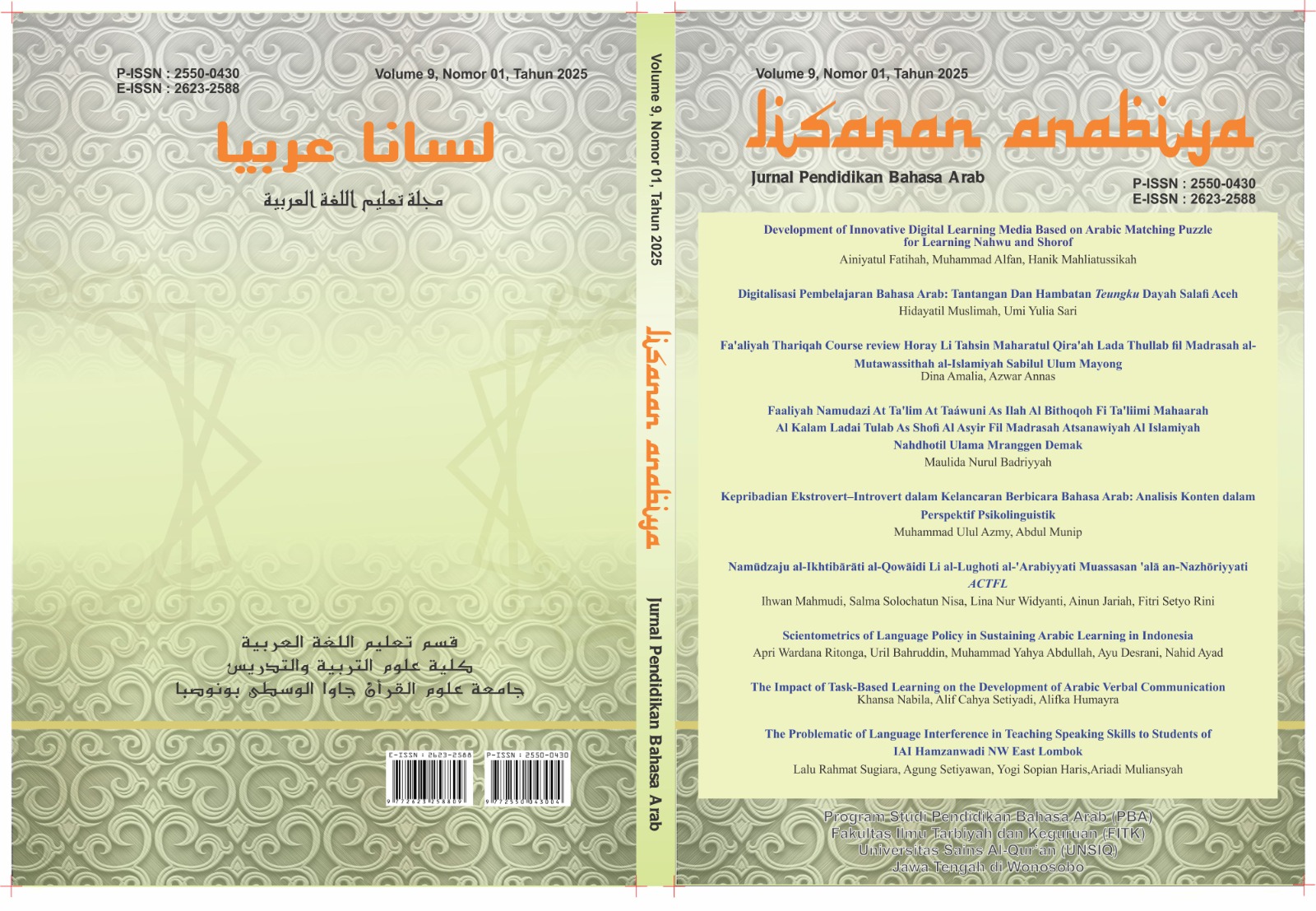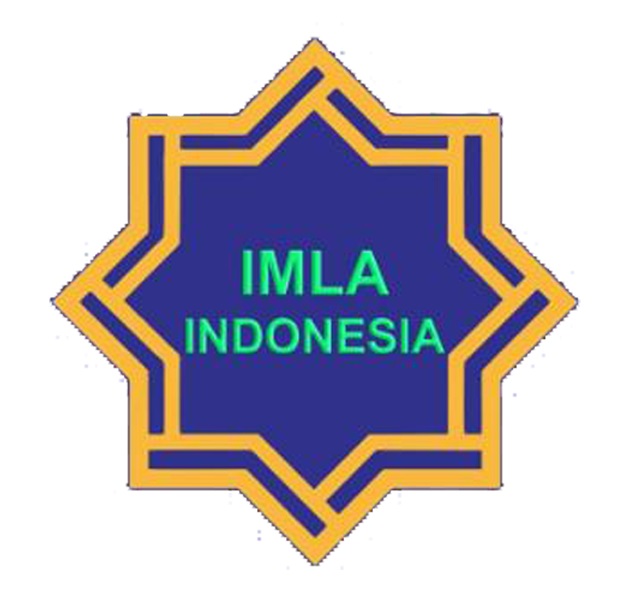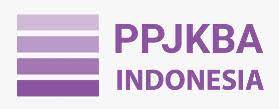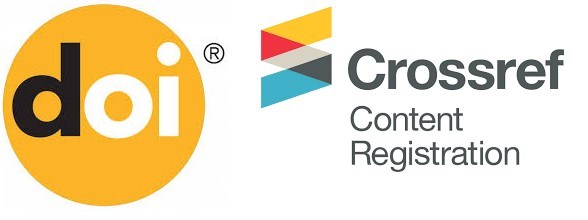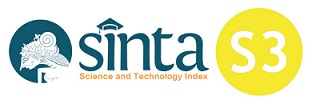Fa’aliyah Namudazi At Ta’lim At Taáwuni As Ilah Al Bithoqoh Fi Ta’liimi Mahaarah Al Kalam Ladai Tulab As Shofi Al Asyir Fil Madrasah Atsanawiyah Al Islamiyah Nahdhotil Ulama Mranggen Demak
Abstract
Speaking skills are considered one of the most important language skills. For this reason, a learning model is needed that is appropriate to the subject and students to improve speaking skills. This research aims to determine the effectiveness of the Quiz-Quiz Trade cooperative learning model in learning speaking skills if vocabulary mastery is controlled.
This research used the True Experiment Design method and was carried out at Nahdlatul Ulama Mranggen Demak high school with a sample of 58 students grouped into two classes. Data collection techniques in this research used observation and tests, which were then analyzed using descriptive analysis techniques, ANAVA techniques, and ANAKOVA techniques. From the analyzed data, the results showed that speaking skills in the experimental class were higher than in the control class. The use of this model was carried out well with increasing observation results.
Besides that, the results of the ANAVA analysis for speaking skills showed an insignificant value, namely F = 1.452 and F criterion = 4.013. The results of the ANAVA analysis of vocabulary ability show significant results because the F value is greater than the F criteria, namely 6.292 and 4.013. Besides that, the results of the covariance analysis of speaking skills after controlling mufrodat mastery showed significant results with F = 7.684 and standard F = 4.016. These results indicate that the research hypothesis can be accepted because it is supported empirically.
Downloads
References
علي الخلّي، محمد، أساليب تدريس اللغة العربية، بيروت : دار الفكر
Afriani, Ridha dkk. 2019. “Keterampilan Sosial Siswa pada Pembelajaran Kooperatif Quiz-quiz trade dan Peer Assesment di Sekolah Dasar”. Jurnal Pendidikan : Teori, Penelitian, dan Pengembangan, 4(8), 1139-1144 https://dx.doi.org/10.17977/jptpp.v4i9.12691
Ala, Muasa, dkk. 2019. “Interferensi Fonologis dan Gramatikal Siswa Kelas VII MTs N 1 Kudus dalam Pembelajaran Bahasa Arab (Kajian Sosiolinguistik), Lisanul Arab, 8 (1), 84-94 https://doi.org/10.15294/la.v8i1.32549
Darmuki, Agus & Ahmad Hariyadi. 2019. “Peningkatan Keterampilan Berbicara Menggunaan Metode Kooperatif Tipe Jigsaw Pada Mahasiswa PBSI Tingkat I-B IKIP PGRI Bojonegoro Tahun Akademik 2018/2019, Jurnal Kredo, 2(2), 256-267 https://doi.org/10.24176/kredo.v2i2.3343
Devitt M. & Hanley R. 2006. The Blackwell Guide to the Philosophy of Language. USA: Blackwell Publishing Ltd.
Effendy, Ahmad Fuad. 2017. Metodologi Pengajaran Bahasa Arab. Malang: Misykat.
Kagan S & Kagan M. 2009. Cooperative Learning. San Clamente: Kagan Publishing.
Mailani, Okarisma, dkk. 2022. “Bahasa Sebagai Alat Komunikasi dalam Kehidupan Manusia”, KAMPRET Journal, 1(2), 1-10 https://doi.org/10.35335/kampret.v1i1.8
Mu’in, Abdullah. 2004. Analisis Kontrastif Bahasa Arab dan Bahasa Indonesia. Jakarta: Al-Husna Baru.
Nasier, Gamal Abdel. 2020. “Urgensi Minat Menghafal al-Qur’an dan Kemampuan Berbahasa Arab bagi Peningkatan Prestasi Tahfidz Al-Qur’an”, Statement, 10 (1), 81 https://doi.org/10.56745/js.v10i1.20
Setyosari, Punaji. 2013. Metode Penelitian Pendidikan&Pengembangan. Jakarta: Prenadamedia Group.
Sudjana. 2005. Metode Statistik. Bandung: Tarsito.
Utama, Erni Guna, dkk. 2023. “Pengaruh Model Kooperatif Quiz-Quiz Trade Berbantuan Media Audio Visual Terhadap Hasil Belajar IPS SD”, Jurnal IKA : Ikatan Alumni PGSG UNARS,13 (1), 173-185 https://doi.org/10.36841/pgsdunars.v13i1.3091

This work is licensed under a Creative Commons Attribution-ShareAlike 4.0 International License.
Authors who publish with this journal agree to the following terms:
a. Authors retain copyright and grant the journal right of first publication with the work simultaneously licensed under a Creative Commons Attribution-ShareAlike 4.0 International License. that allows others to share the work with an acknowledgement of the work's authorship and initial publication in this journal.
b. Authors are able to enter into separate, additional contractual arrangements for the non-exclusive distribution of the journal's published version of the work (e.g., post it to an institutional repository or publish it in a book), with an acknowledgement of its initial publication in this journal.
c. Authors are permitted and encouraged to post their work online (e.g., in institutional repositories or on their website) prior to and during the submission process, as it can lead to productive exchanges, as well as earlier and greater citation of published work (See The Effect of Open Access).

